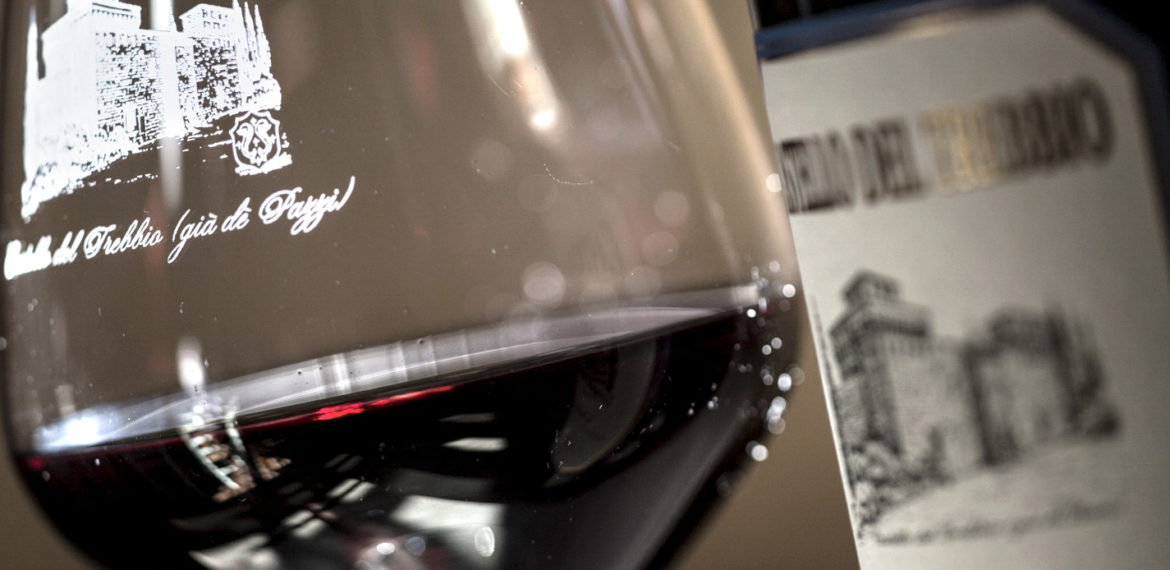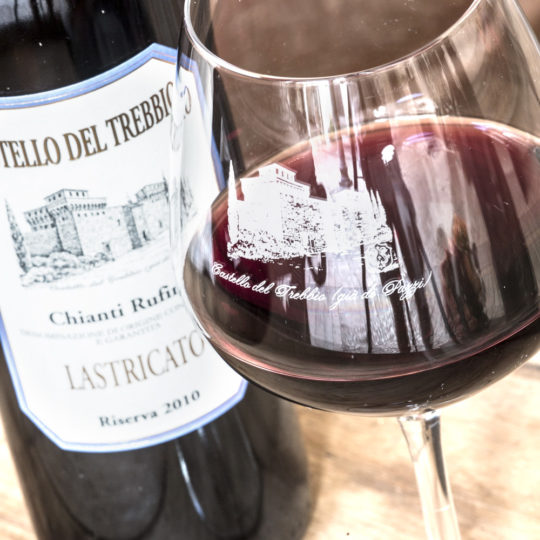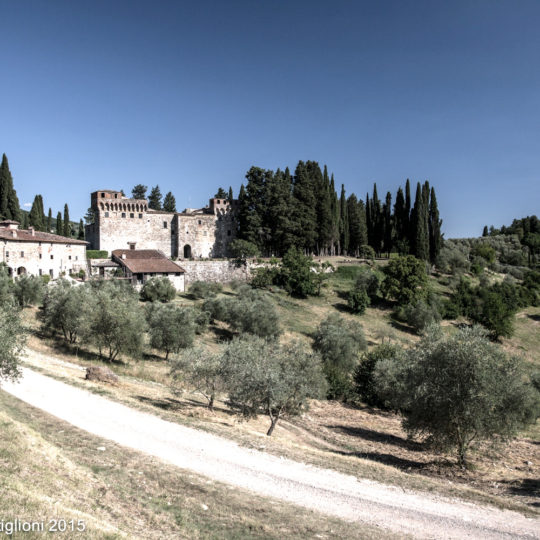
Chianti Rufina Riserva DOCG Lastricato 2011, produced by Castello del Trebbio and distributed all over Italy and abroad, was awarded with “Tre Bicchieri” of Gambero Rosso. A major award not only for Castello del Trebbio, but also for the whole area of Chianti Rufina, famous for its quality wines, that finally receives an international appreciation.
“We are proud that one of our wines has been awarded by the guide that promotes (the) great Italian wines in our country and abroad – said Stefano and Anna Casadei – is our first”Tre Bicchieri”, an important award confirming that our 60 hectares of vineyards are able to produce great wines and that this area is exceptionally vocated. Our Chianti Rufina has a great aging potential: it can be aged for over 30 years. ”
Trebbio Castle is just a few kilometers away from Florence, between Chianti Colli Fiorentini and Chianti Rufina region. This Castle is not only an historic manor with a glorious past, but also a flourishing farm that Stefano and Anna Casadei have transformed into a modern reality, one the most popular and dinamic wine producers of Tuscany.
It all was possible thanks to an extreme attention to quality and details, thanks to a total fidelity to the strong Tuscan roots. The same careful approach was carried on also in the strategy of wine distribution all over the World. These choices were finally rewarded.
Castello del Trebbio wine production philosophy takes inspiration from the great agricultural tradition of the area and can count on vineyards with an optimal exposure, managed following traditional methods.
However Castello del Trebbio wines are the expression of two souls: the great Tuscan tradition on wine side and the new potential of the territory on the other.
In fact, Trebbio has also become synonymous of those non-native vines that were able to find a new home, right in the Chianti Rufina region. .
Castello del Trebbio is one of the Casadei family estates which is adopting BioIntegrale philosophy in order to produce quality wines, respecting the environment, the nature, and the people living around the estates.
According to this approach are often recovered old methods of cultivation and fertilizers, pesticides and any additive are banned. Mulching practices are used to improve the fertility of the ground; the beauty of the environment is preserved also burying the electricity pylons and the local economy is supported, providing job opportunities and choosing local suppliers.
Attention to the environment and its people, a come back to old traditions, well integrated with today’s most modern knowledge.



